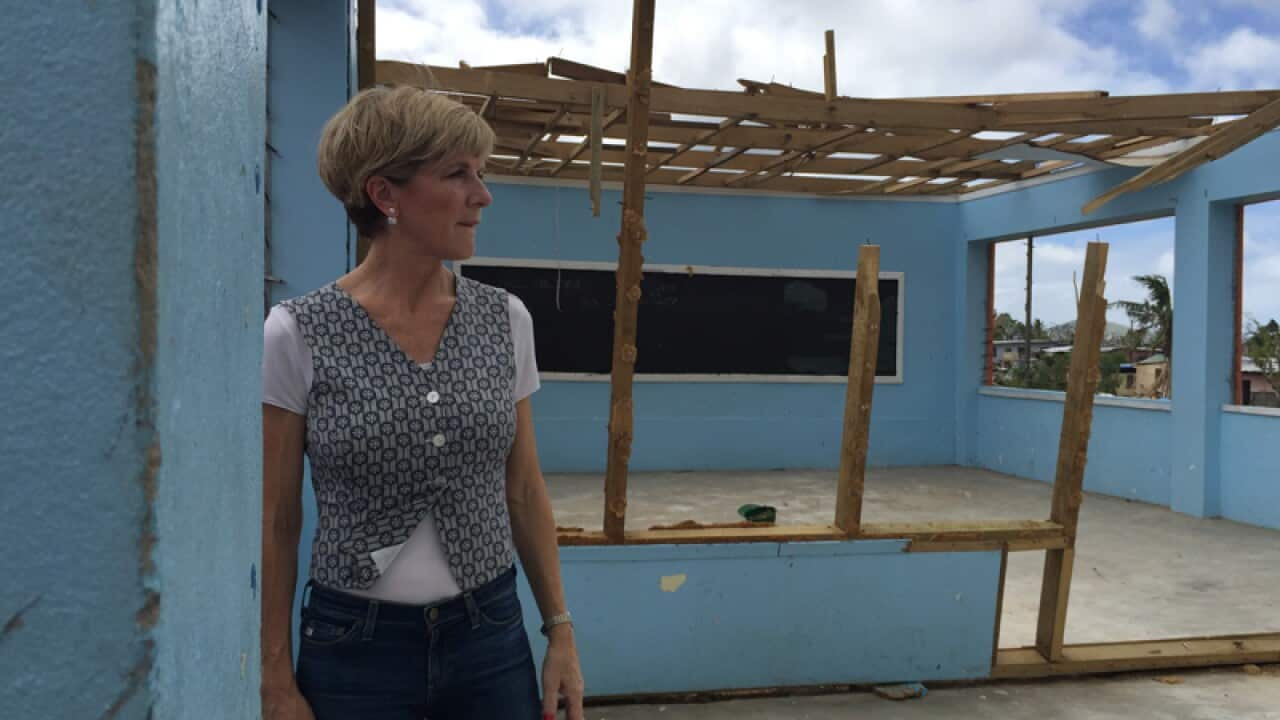Eighteen-year-old Jordy Didok Iokaim won't soon forget what Cyclone Pam did to his village in the central part of Vanuatu's Tanna Island.
It was one of the areas worst affected by the category five storm which struck in March 2015.
"We were afraid, because this cyclone is not like some of the cyclones that [have happened] on our island," he said.
His house survived, but 20 people from his village of 30 were left homeless, seeking refuge inside Mr Iokaim's family home.
The cyclone also wiped out food sources, such as home vegetable gardens, and animals.
"It is look like, very bad," he said. "Because houses are fallen and our animals, like dogs, cats, chickens died during the strike of Cyclone Pam.
"The people were very hungry, and during that time we find it very hard to find food and water."
Peter Korisa Pkamil, Operations Manager of Vanuatu's National Disaster Management Office, says Pam was so intense it pushed response teams to their limits.
"It was more like an eye-opener for us," he said.
"It forces us to really look at how we could strengthen all of us holistically, from a national level down to a community level."
The National Disaster Management Office in Port Vila is a hub for fighting the small island nation's many natural disasters.
Inside, employees monitor earthquakes, tsunamis and volcanos as well as the seasonal threat of cyclones.
Mr Pkamil says systems have been upgraded and procedures have been improved since Cyclone Pam swept through.
A more robust information management system has been put in place, and new equipment has been installed with the help of international aid, including from Australia.
Weather forecaster Able Kalo is now able to see satellite updates every 10 minutes instead of every hour.
"It's much easier," he said. "Disemination of information to the public has greatly improved."
But Vanuatu is a country with very limited resources, and massive logistical problems remain.
Mr Pkamil says government officials only have access to one privately-owned helicopter when disasters hit, and owns just one frigate to reach more than 60 inhabited islands.
The country is still greatly reliant on the help of larger and better equipped nations during wide-scale disasters.
"For government, we only have one petrol boat, and this is quite small, so we cannot reach all the islands [without help]," he said.
Mr Iokaim believes people in his village will be better prepared if a disaster on the scale of Cylone Pam were to hit again.
"During the last cyclone, Cyclone Pam, some of us were ready and some of us not ready," he said.
"I think that in the future, if we have another cyclone, people in my village will prepare in advance."
The nation's preparedness may be tested soon, with forecasters predicting up to three cyclones this season.
The author travelled to Vanuatu with the assistance of International Finance Corporation.












